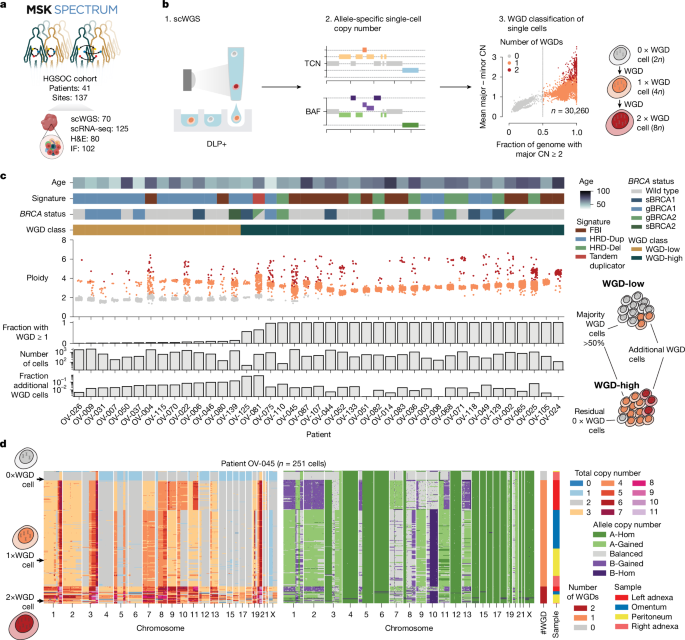
"Whole-genome doubling (WGD) occurs in over 30% of solid cancers, resulting in increased metastasis rates, drug resistance, and poor therapeutic outcomes."
"WGD often coincides with TP53 mutations, causing chromosomal instability (CIN) and karyotypic diversification, which are integral to tumor evolution."
"Single-cell analysis reveals that WGD is an ongoing evolutionary process influencing inflammatory signaling and immunosuppression in high-grade serous ovarian cancer."
"Single-cell whole-genome sequencing (scWGS) enables a detailed understanding of WGD dynamics and related phenotypic consequences in cancer."
Whole-genome doubling (WGD) appears in over 30% of solid tumors, notably linked with TP53 mutations, leading to enhanced chromosomal instability (CIN) and karyotypic diversity. This process is characterized by increased rates of metastasis, drug resistance, and poor therapeutic outcomes. Despite its significance, the understanding of WGD's influence on tumor evolution and the tumor microenvironment is limited. Single-cell approaches reveal WGD as an active evolutionary aspect in high-grade serous ovarian cancer (HGSOC), intertwining with immunosuppressive inflammatory signaling. The study employed single-cell whole-genome sequencing to map these dynamics in patient tumors.
#whole-genome-doubling #cancer-evolution #high-grade-serous-ovarian-cancer #chromosomal-instability #single-cell-sequencing
Read at Nature
Unable to calculate read time
Collection
[
|
...
]